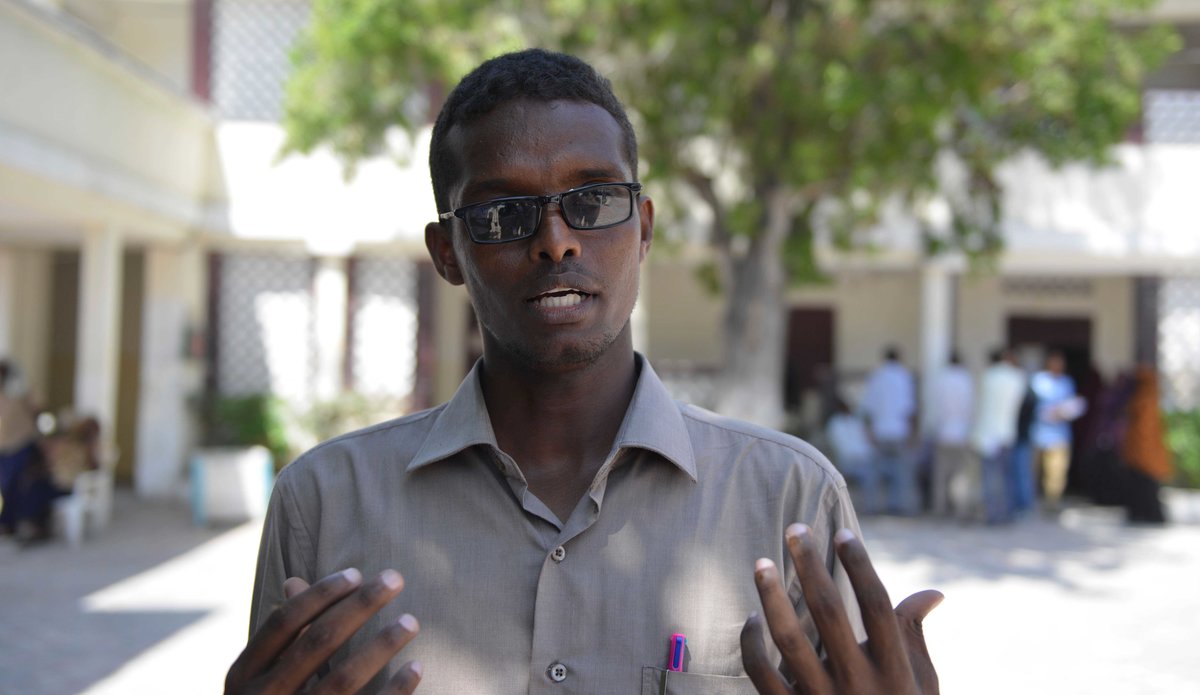Somali youth express satisfaction with the ongoing electoral process
Thirty-two-year-old Ibrahim Dahir Hussein was one of the Somali youth who had lost hope in the country’s politics.
He was tired of hearing old politicians repeat that youth are the future leaders, yet no action was being taken to include young people in the affairs of the country.
However, Mr. Hussein’s views began to change after seeing efforts made by the Federal Indirect Electoral Implementation Team (FIEIT) to encourage youth to participate in politics ahead of the 2016 electoral process.
“Initially we had only elders taking part in politics but now we are involved. They (youthful MPs) can bring positive change,” says the Simad University student.
Mr. Hussein says he could not hide his joy whenever youthful MPs defeated their ageing competitors to emerge winners.
“I hope that they (the youth) will bring real change because they are fresh, educated and not tainted with clan differences. I am happy and have great expectations of them,” he adds.
In fact, the 2016 electoral model requires that elders also choose women and youth as delegates responsible for electing members of the House of the People.
Abdirisak Omar Ahmed, a law student at Simad University, concurs that this requirement has helped increase youth participation in the electoral process, unlike in the past.
Mr. Ahmed, who is also the President of the University Guild, believes the involvement of youth in political affairs will help bring peace and stability to the country.
“My desire is to see the restoration of the rule of law and this is what is happening now. The extension of the Electoral College to other regions is good for the stability of the country. The difference between 2012 and the current process is in its inclusiveness,” Mr. Ahmed observes.
Though most of the youth will not take part in the indirect elections in which 329 parliamentary representatives will be chosen, Anisa Mohamed Ibrahim, a youth delegate in South West State, feels honoured for exercising her right to vote on behalf of the country’s youth.
“This gives me confidence to be an example to other youth, to show them that I have a voice and can determine the future of our country by voting for the leaders of our choice,” Ms. Ibrahim says.
Abdinasir Mushraf believes the electoral process has given the young people a voice to directly determine the affairs of the country.
“Previously the youth never had the opportunity to vote and choose a person they like. We are now witnessing the change we desired. The era in which one clan elder chose the Member of Parliament is now a thing of the past. We hope to achieve the one-man, one-vote (election) in future,” says Mr. Mushraf, a youth delegate in Baidoa.
The sentiment is also shared by Saadia Yussuf, a youth delegate from Baidoa, who is happy for the opportunity to vote for a candidate of her choice.
“I voted for the person who I trust will represent our interests as youth. One who will raise issues affecting the electorate and help pass new legislation that benefits us,” Ms Yussuf says.
 UN
UN





